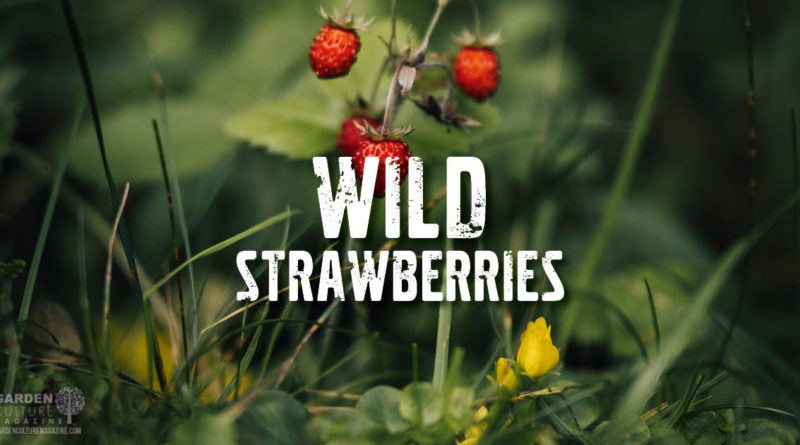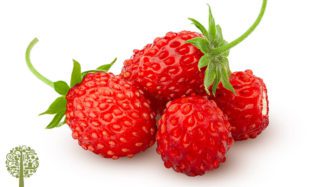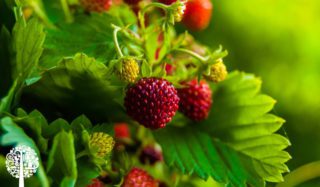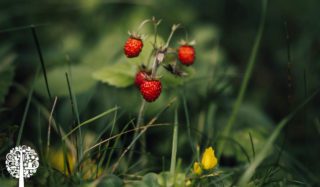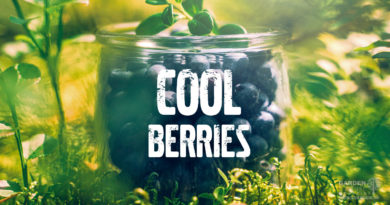Wild Strawberries: Medicinal Weed and Superfood
Humble in appearance, many consider the wild strawberry to be nothing but a weed. After all, wild strawberries spread quickly via runners and seeds and easily take over lawns and flower beds. The plant prefers moist, fertile, well-drained soil that is slightly acidic. However, even if the conditions aren’t optimal, these berries happily grow and spread all the same. Although invasive, Fragaria vesca should have a place in our yards and gardens, as it is incredibly medicinal while also being a delicious superfood!
Fragrant and Tasty Berries
Wild strawberries are delicious; from tart to super sweet, every fruit has a unique taste and fragrance. However, harvesting these berries can be pretty challenging and time-consuming, as the fruits are tiny. Patience is critical when wanting to indulge in these vibrant red gems.
Superfood Status
Wild strawberries are very healthy, bursting with vitamins A, B, C, and E, antioxidants, flavonoids, potassium, iron, manganese, fluorine, copper, iodine, fiber, and folates. The flavonoids and antioxidants reduce the risk of heart disease and work as a potent anti-inflammatory. Eating wild strawberries also helps regulate blood sugar and blood pressure. With its high mineral content, the scarlet berries remineralize the body. The best part? As sweet as these berries are, they don’t have a high sugar content and are very low-calorie! So, go ahead and enjoy all the gifts this beautiful berry offers.
Medicine Chest
The entire wild strawberry plant has long been appreciated for its many health benefits. Strawberries were cultivated as medicine by the Romans and also later in France in the 13th century. Natives considered wild strawberries a sacred plant and a symbol of prosperity, as it is the first berry to appear in early summer. They also used the leaves in tea to treat scurvy and to soothe burns and sores.
All this time later, herbalists are still using wild strawberries for various treatments. While very powerful, this ‘weed’ is also a very gentle remedy and can heal many different ailments.
Fantastic Fruit
Strawberries contain salicylic acid, and therefore, help treat liver, stomach, and kidney issues, as well as rheumatism and gout. Mildly laxative, this fruit can also cleanse the body.
Fresh, mashed strawberries can be used for brushing teeth and can even remove stains if swished around in your mouth for five minutes. Doing so can also help remove tartar buildup.
The fruits are excellent for skincare. Crushing ripe, wild strawberries into a paste and applying to the face as a 10-minute mask helps tone and lighten spots, reduce the appearance of wrinkles, and more. Rich in alpha hydroxy acid, the strawberries are a tonic that refreshes the skin.
Lovely Leaves
Wild strawberry leaves can be harvested for medicine all summer long and are excellent fresh or dried. For a milder taste, pick the greens in the early spring before the strawberry flowers bloom. Rich in vitamin C, the leaves also contain iron and minerals such as magnesium, potassium, phosphorus, and sodium. Leaves have a subtle fruity flavor when brewed as a tea.
The tea made from strawberry leaves is a gentle and nourishing blood tonic. Diuretic and gently depurative, the leaves can help cleanse the body. They contain tannins, an astringent component that will relieve diarrhea when taken as an infusion. An infusion of the leaves can be used as a substitute for tea and calms nerves before bed.
Got a bad sunburn? A cooled, strong infusion of the tea can help that. Soak a piece of cloth in the tea and apply to the burn as many times as needed. The same herbal infusion can be used as a mouthwash and gargle to treat gingivitis, inflammation, and ulcers.
Righteous Roots
The roots can be dried, powdered, and used in a herbal toothpaste formula to fortify the gums and keep them healthy. Harvested in the fall, the root can also treat diarrhea and urinary infections.
A Gentle Medicine For All
The entire strawberry plant is very safe to use, but allergic reactions do happen. Although extremely rare, strawberry allergens can be serious. Avoid harvesting and ingesting this fruit if you suspect you are allergic.
Otherwise, from mid-June to early July, grab a basket and enjoy some time in nature while harvesting this delicious fruit and benefiting from its excellent medicine. Happy foraging!

